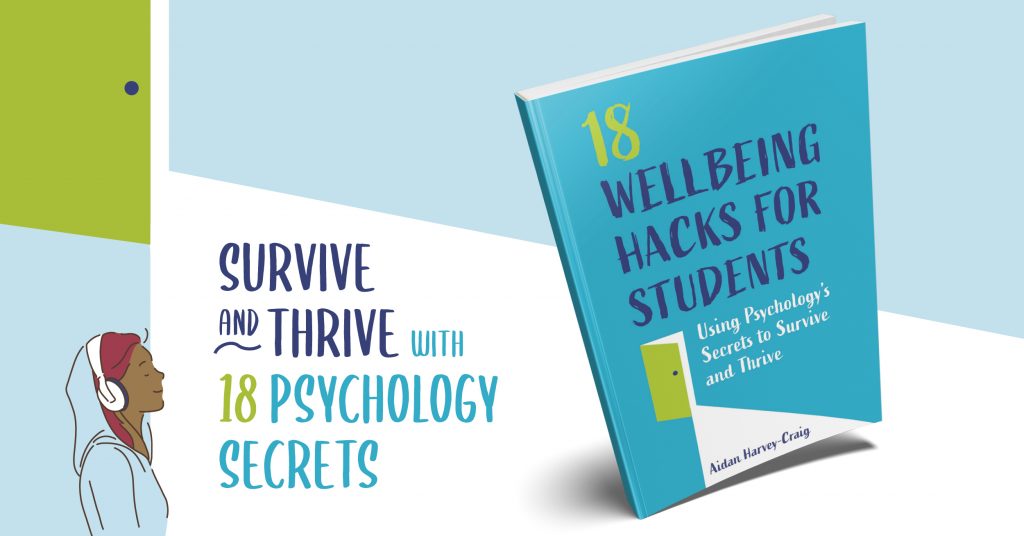Aidan Harvey-Craig, author of 18 Wellbeing Hacks for Students: Using Psychology’s Secrets to Survive and Thrive talks how it really does take courage to be kind, and that it is always worth the risk.
There’s a recurring line in Disney’s live action remake of Cinderella. On her death bed, Cinderella’s mother tells her young daughter to, ‘have courage and be kind’. This courageous element to kindness is often overlooked and yet it’s becoming more relevant by the day.
The thing is, kindness makes you vulnerable. That’s because it’s about connecting with other people, which is something that always comes with risk. The risks are primarily about rejection and offence. And it’s not just being kind which brings these risks, it’s even risky to accept kindness.
Let’s take an example – a boy at school sees a new girl from the year below looking a bit lost in the corridor between lessons. It seems obvious, at first glance, that the kind thing to do would be to stop for a moment and simply ask if she needs any help getting to her class. Where’s the risk in that?
Firstly, the boy risks rejection – what if the girl tells him to mind his own business and get lost? This might seem trivial, but rejection, even in small doses, activates the same parts of our brain that process physical pain, so it really can hurt. If there are other people around, he risks an audience for this rejection and the ensuing shame and embarrassment which that could give rise to.
So, what about the girl? Where’s the risk in her accepting his kindness? Well, she has to trust that he’s for real – that all he really wants to do is check if she needs any help. But what if he’s about to make fun of her for being so clueless? What if he’s hitting on her? These also are real risks.
So, an interaction as simple as that comes with many risks on both sides. But it could be getting gradually more dangerous to be kind. Recent movements for equality, from #MeToo to Black Lives Matter, have done huge amounts of good in raising awareness of prejudice, injustice and inequality. Often this is done by shining a spotlight on interactions between people from different social groups. They have done much work to highlight things such as everyday sexism, micro-aggressions, and implicit bias.
But this itself comes with risks. As we focus on all of the ways that things can go wrong, even pointing out that you often won’t even realise that you’re the one causing harm, the stakes of human interaction are raised. Especially interaction between people from different social groups. The danger is that we make human interactions so complicated and so laden with the potential to cause offence, that it becomes easier to stop reaching out to people we don’t know well. To stop risking kindness to strangers altogether.
This should concern us all. There’s a wealth of empirical evidence for the wellbeing benefit of kindness. Being kind makes us healthier, less depressed, less stressed, less anxious. It’s even makes children less likely to be bullied. This is because kindness is all about forging connections with those around us, creating bonds which are the bedrock of wellbeing.
So, we need to foster kindness and we need to do so in a way that recognises that human interaction feels to many as though it’s becoming increasingly risky. There are no easy answers to this, but there are some useful ideas that are worth trying. The first is to start with an assumption that other people are doing their best. This used to be called giving someone the ‘benefit of the doubt’. So, if someone blanks your cheery ‘hello’, consider that they may have just had a big argument with someone they love. The good thing about this is that, whether it’s true or not, it really helps.
Secondly, if your kindness is rejected or received with offence, try to acknowledge your own hurt without turning it into self-criticism. Pretending you don’t care, or beating yourself up about even having tried to be kind, are both pitfalls that are likely to make things worse.
Finally, keep Cinderella’s mother’s advice in mind. If you’ve tried to be kind and it’s been taken badly, rather than letting this put you off, focus on the fact that it shows how brave you have been. So, keep at it – keep taking the risk, keep daring to be vulnerable, and keep proving to yourself and others how brave you are. Because being kind is not easy – it really does take courage.
If you would like to read more articles like this and get the latest news and offers on our health care books, why not join our mailing list? We can send information by email or post as you prefer. You may also be interested in liking our Special Education and PSHE Facebook page.
